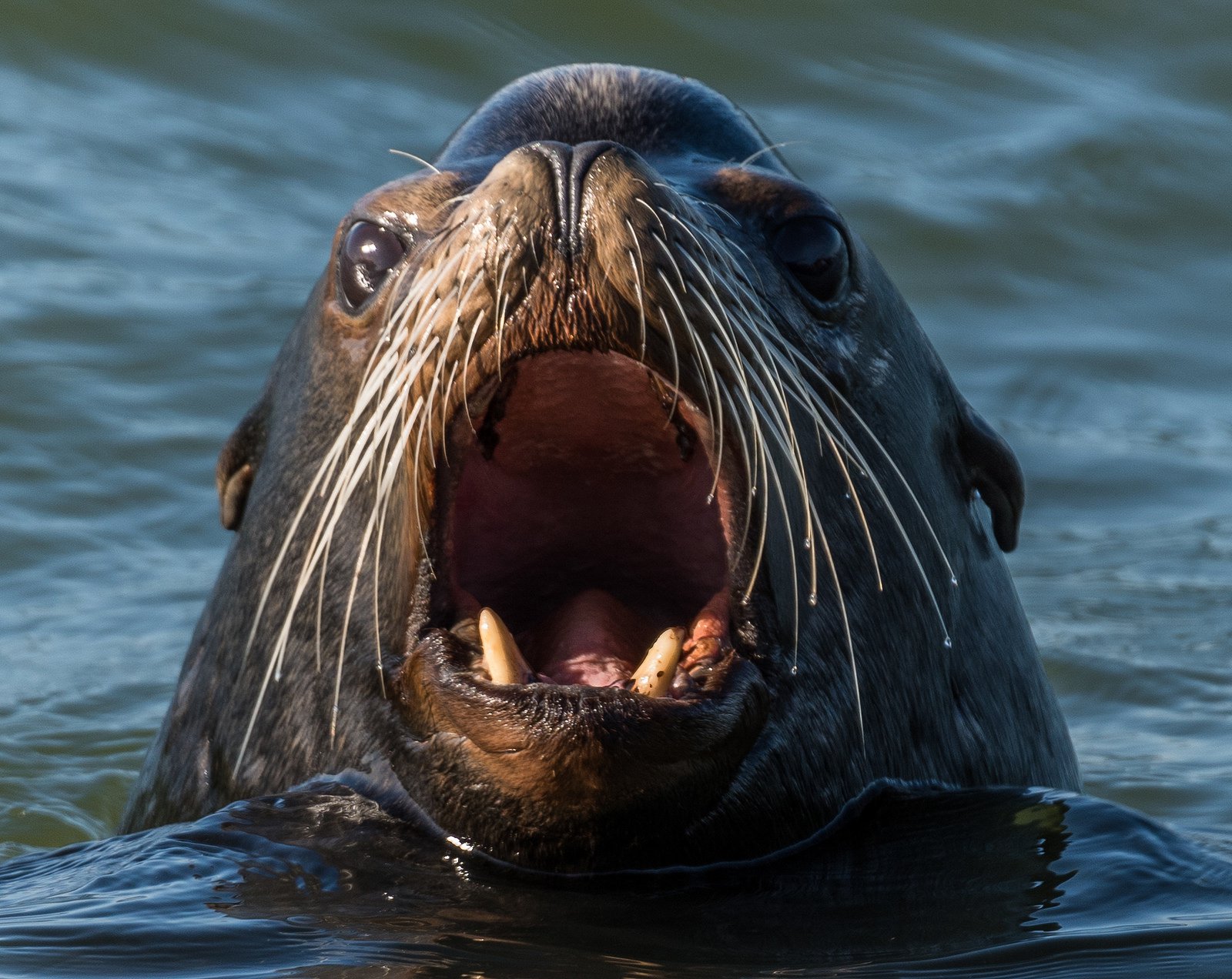Efforts to Reduce Sea Lion Predation in the Basin Are Saving Salmon
- December 19, 2022
- Carol Winkel

Sea lion predation on salmon, steelhead, and white sturgeon in the Columbia Basin has been a growing concern since the late 1990s, especially in the area below Bonneville Dam. The dam creates an ideal fishing opportunity for the animals.
At the Council’s December meeting, Doug Hatch of the Columbia River Inter-Tribal Fish Commission and Casey Clark with the Washington Department of Fish and Wildlife briefed members on the current situation in the basin. The Council’s fish and wildlife program supports expanded predator management in order to preserve the effectiveness of its work.
Representing the pinniped management team, which includes the Oregon Department of Fish and Wildlife, Washington Department of Fish and Wildlife, Idaho Department of Fish and Game, and the Columbia River Inter-Tribal Fish Commission, they outlined the impact of management actions to address sea lion predation in the Columbia River.
While sea lions are safeguarded under the Marine Mammal Protection Act, Congress also established a process for the lethal take of individually identifiable pinnipeds harming the recovery of salmonid fishery stocks. In 2018, the law was amended to allow area-based management instead of individual sea lion-based management.
“This was a game changer,” said Hatch. “Before the change, it was a complicated procedure to remove an animal.”
The amendment includes the tribes as eligible entities and allows the removal of Steller sea lions, which have had such a huge impact; they’re larger than California sea lions, stay around longer, and eat more fish.
Removing sea lions in the basin reduces a source of mortality to listed and non-listed fish species. In 2020, Congress passed a law that allowed government agencies to lethally remove Steller and California Sea Lions in select locations of the Columbia and Willamette Rivers. Under this new law, the states of Washington, Oregon, and Idaho, and the Nez Perce Tribe, the Confederated Tribes of the Umatilla Indian Reservation, the Confederated Tribes of the Warm Springs Reservation of Oregon, and the Confederated Tribes and Bands of the Yakama Nation are eligible to apply for a permit from NOAA Fisheries to remove predatory sea lions in the Columbia River and specified tributaries.
Since 2008, 376 sea lions have been removed at all locations, saving tens of thousands of salmon. A sea lion eats between three to five fish a day.
At Willamette Falls, there was an 89 percent chance of extinction for winter steelhead in 2017, as sea lions consumed about 25 percent of some runs. After two seasons of sea lion removals, steelhead rebounded, and the extinction risk dropped to 11 percent.
“We’d like to do something similar at Bonneville Dam,” said Clark. “It’s more difficult given the number of sea lions.”



